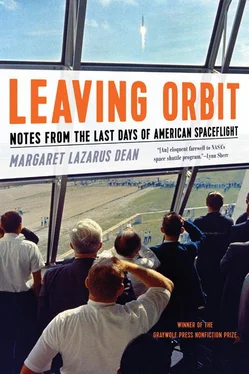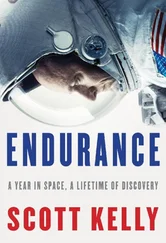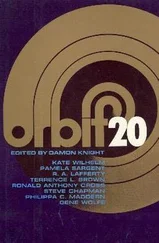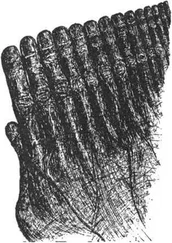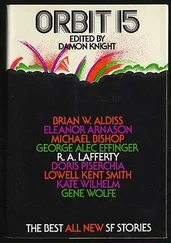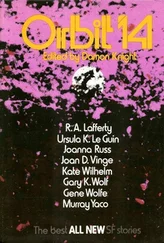One I like to repeat is from Michael Collins: over four hundred thousand people worked on Apollo at its height, he points out, and not one of them has come forward to spill the secret in the intervening decades. “I don’t know two Americans who have a fantastic secret without one of them blurting it out to the press,” he points out in a documentary interview. “Can you imagine thousands of people able to keep this secret?” The idea that so many people, many of whom would have to be in a position to know of the deception, kept such an incendiary secret for decades strains even the most generous understanding of human nature.
My other favorite counterargument draws on evidence that is more empirical. All six missions to land on the moon brought back pounds of moon rocks. These rocks have been made available to scientists, who have studied them using technologies that had not yet been invented during Apollo. Either NASA figured out a way to create fake moon rocks convincing to the molecular level, or the hundreds of scientists from all over the world who have been allowed to study the rocks over the years are in on the conspiracy. Neither seems likely. It seems much more likely that if NASA wanted to fool people with a fake moon landing, their first order of business would be to come up with a plausible reason why the spacecraft couldn’t carry back any rocks.
But none of my counterevidence will make much difference, I know. There is a pleasure in doubting. I’ve felt it too, about other things: a satisfaction at being smarter than those who have been duped, a satisfaction at being ungullible. I once met another Apollo astronaut, Jack Schmitt, a geologist and the first scientist to travel in space. I told him that his name is in my novel—my main character was born in 1972, the same day Schmitt and his crewmate Gene Cernan fired their lunar module’s ascent stage and lifted off the surface of the moon for the last time. I asked him what he says to moon hoax conspiracists.
“Well,” he said, slowly, “I describe to them my personal experience of walking on the moon. And if they choose to believe I am a liar, there is nothing I can do to help that.”
“Good answer,” I said.
It’s the condescension in the conspiracist’s smirk that drives me insane. The smirk makes me a credulous dupe, one of the clamoring naive who believes the bedtime story. The conspiracists want to erase from the official record the achievement that some call the greatest achievement of the United States, the greatest achievement of the twentieth century, the greatest achievement in the history of humankind. The rage this elicits in me (a tiny flame, entirely controllable in social situations, yet rage is the word for it nonetheless) is hard to describe. It is a patriotic rage, on behalf of forces much larger than myself, people much greater than myself. The doubters are calling people I admire liars, men who risked their lives for their country before they risked their lives for the exploration of space. Buzz Aldrin a liar, Neil Armstrong a liar, Michael Collins a liar. And the worst kind of liars—those who would manipulate our highest values for their own personal gain. It makes more sense to the doubters that NASA is an organization of frauds and opportunists than that a government agency achieved something beautiful and important, and this angers me on behalf of both the past and the future.
I’ve talked to people, friends and strangers, about what it means that the shuttle era is ending, and I’m both heartened by the sadness people seem to feel over its loss and frustrated by the general ignorance about spaceflight and its costs. People tell me that the shuttle program is being sacrificed so the money can be diverted to wars in Iraq and Afghanistan, that the shuttles had to be retired because they have flown more missions than they were designed for, that we are stepping aside as leaders in space in order to create a “more egalitarian” position in the world as part of our president’s general move toward socialism. None of these claims have any truth to them.
“Why are we stopping then?” people ask me. I’m always a little more flummoxed by this question than I should be, given how much time I’ve spent reading and thinking about it. It’s complicated , I say. The loss of Columbia was the beginning of the end—that much is true no matter whom you ask. After that disaster, politicians in Washington would have had to spend a lot of political capital to save the shuttle, and a recession would be an especially treacherous time to do that. All this sounds weaker than what I really want to say, though, which is partly that the public’s own apathy is to blame. It’s closest to the truth to say that the fundamental problem is that most people had not really noticed that we were still flying in the first place.
I watch the video of the Punch that night after my family is asleep, over and over, trying to get some feeling for the man. But we are not ourselves at our most extreme—not in a moment of rage at being called a coward, not in the moment of the utmost courage, guiding an untested spacecraft down, down, down toward the surface of a desolate alien world while the alarms blare and the fuel runs low. I know only that I don’t yet know Buzz Aldrin at all.
* * *
Waiting on a street in downtown Nashville for Buzz Aldrin’s limo to arrive from the airport, I decide not to ask him about the Punch, or about Bart Sibrel, or about hoax conspiracy theory in general. That’s what everyone else asks him about, people who don’t know much about spaceflight. They ask him about the Punch, they ask him whether Buzz Lightyear was really named for him (he was), they ask him what it felt like to walk on the moon. Buzz Aldrin has been surrounded by space groupies since he was selected as an astronaut forty-six years ago; he has been followed and accosted and approached and stared at and flirted with by people who know only that he is an astronaut, which is to say that they know he is famous, or that he is a hero, without really understanding the details of his fame or his heroism. I want Buzz to know that I am not one of those people.
In my hotel room the night before, I’d looked over everything I had learned about him: Buzz Aldrin graduated from West Point and served as a fighter pilot in the Korean War. He became a war hero when he shot down two MiGs and was decorated with the Distinguished Flying Cross. He then earned a doctorate in astronautics from MIT by the age of thirty-three.
Buzz has also been getting quite a bit of attention lately. Around the fortieth anniversary of the moon landings, he did interviews with USA Today , the New York Times Magazine , the Today Show , CNN, NPR, C-SPAN, Fox News, the Guardian, Interview , and GQ. He rapped with Snoop Dogg; appeared in ads for Omega watches, Louis Vuitton luggage, and Krug champagne; and started tweeting actively. He did a cameo on 30 Rock , served as an announcer for a professional wrestling match, and held up his end of a cha-cha on Dancing with the Stars. For a few weeks before I met Buzz Aldrin, I couldn’t poke around online or turn on my TV without seeing him. The three-man crew of Apollo 11 has displayed the full range of approaches to life as an aging moonwalker: near-total recluse in the person of Neil Armstrong until his death in 2012; active autographer and occasional interview subject Mike Collins; and at the other extreme Buzz Aldrin, who, at least for a while there, was constantly in the public eye.
The idea of introducing Buzz Aldrin to a huge crowd later today terrifies me, but I’ve agreed to it specifically because I want to have the chance to talk with him one-on-one about the impending retirement of the space shuttle. I’ve tried to anticipate what he might think about the end of shuttle, the fact that the fifty-year era of human spaceflight he participated in so admirably is ending, and my best guess is that he will say it’s a failure of imagination. Everyone who lived through Apollo, it seems, bears a memory of a time when nothing was going to be impossible, when those first steps would be the beginning of a new era in which we would accomplish more and more in space. If it felt this way to people who watched Buzz walk on the moon, I can’t imagine what it must have felt like to Buzz himself.
Читать дальше
